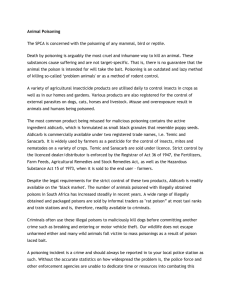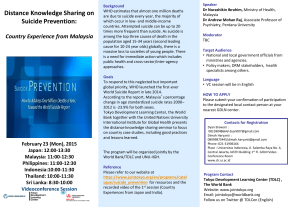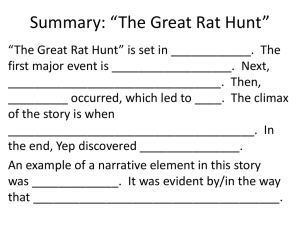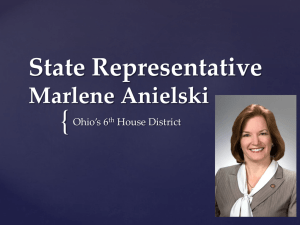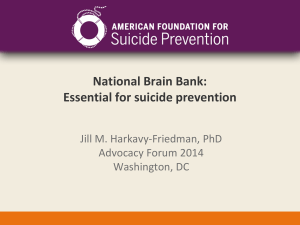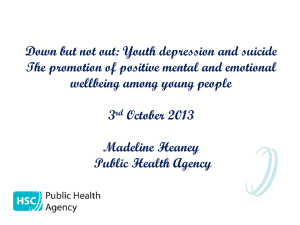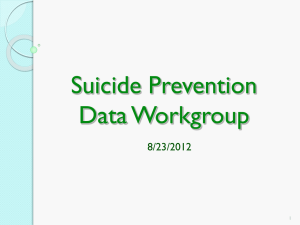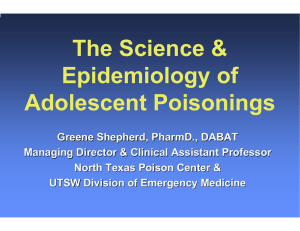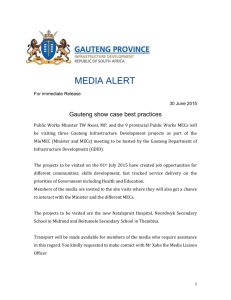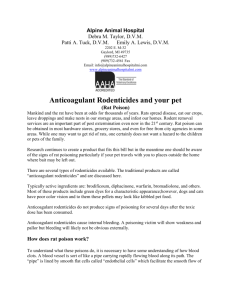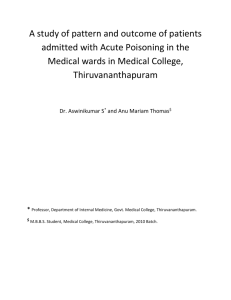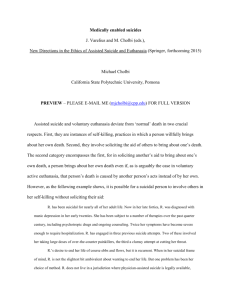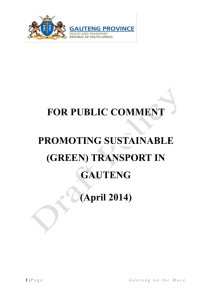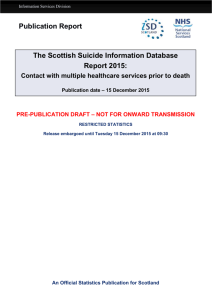media statement - rodenticides a common agent in attempted suicides
advertisement
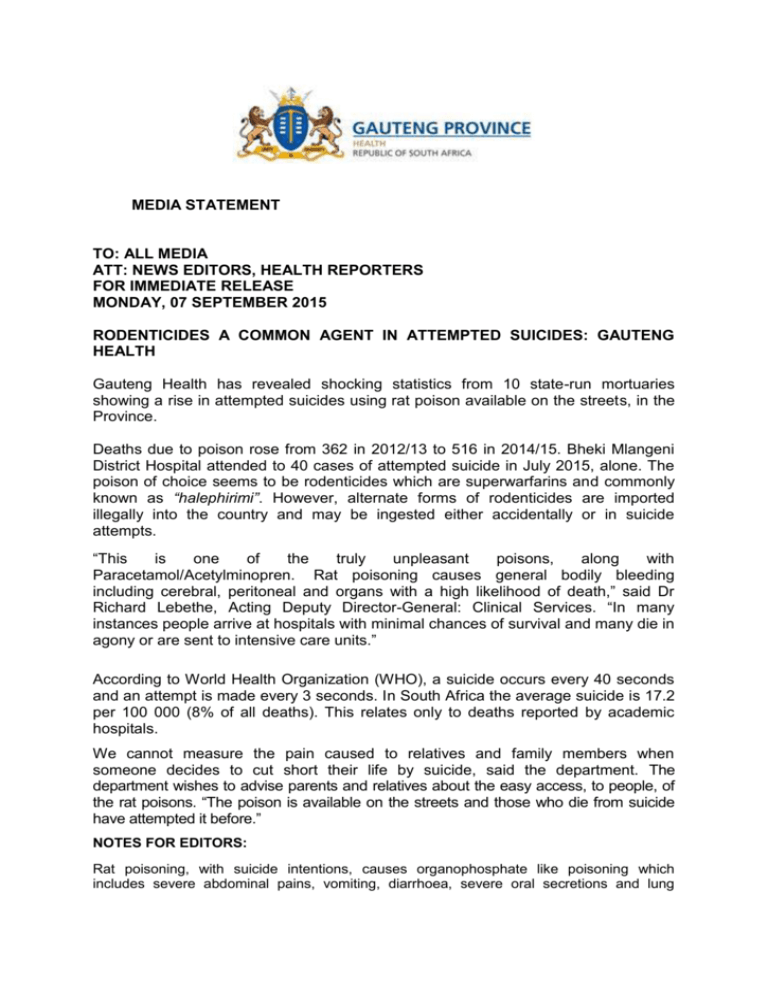
MEDIA STATEMENT TO: ALL MEDIA ATT: NEWS EDITORS, HEALTH REPORTERS FOR IMMEDIATE RELEASE MONDAY, 07 SEPTEMBER 2015 RODENTICIDES A COMMON AGENT IN ATTEMPTED SUICIDES: GAUTENG HEALTH Gauteng Health has revealed shocking statistics from 10 state-run mortuaries showing a rise in attempted suicides using rat poison available on the streets, in the Province. Deaths due to poison rose from 362 in 2012/13 to 516 in 2014/15. Bheki Mlangeni District Hospital attended to 40 cases of attempted suicide in July 2015, alone. The poison of choice seems to be rodenticides which are superwarfarins and commonly known as “halephirimi”. However, alternate forms of rodenticides are imported illegally into the country and may be ingested either accidentally or in suicide attempts. “This is one of the truly unpleasant poisons, along with Paracetamol/Acetylminopren. Rat poisoning causes general bodily bleeding including cerebral, peritoneal and organs with a high likelihood of death,” said Dr Richard Lebethe, Acting Deputy Director-General: Clinical Services. “In many instances people arrive at hospitals with minimal chances of survival and many die in agony or are sent to intensive care units.” According to World Health Organization (WHO), a suicide occurs every 40 seconds and an attempt is made every 3 seconds. In South Africa the average suicide is 17.2 per 100 000 (8% of all deaths). This relates only to deaths reported by academic hospitals. We cannot measure the pain caused to relatives and family members when someone decides to cut short their life by suicide, said the department. The department wishes to advise parents and relatives about the easy access, to people, of the rat poisons. “The poison is available on the streets and those who die from suicide have attempted it before.” NOTES FOR EDITORS: Rat poisoning, with suicide intentions, causes organophosphate like poisoning which includes severe abdominal pains, vomiting, diarrhoea, severe oral secretions and lung secretions. These patients tend to look lots of fluids by literally pouring fluids from everywhere. There are specialised health interventions that could help save those who attempt suicide by drinking rat poison, however this is dependent on the timing of the intervention. In most cases, patients arrive late and when they are saved they may develop neurological side effects including psychosis. ENDS For more information please contact Steve Mabona 072 574 3860 For media enquiries, please use the address: mediaenquiries@gauteng.gov.za For media releases, speeches and news visit the Gauteng Department of Health’s portal at www.health.gpg.gov.za; Issued by Gauteng Department of Health
